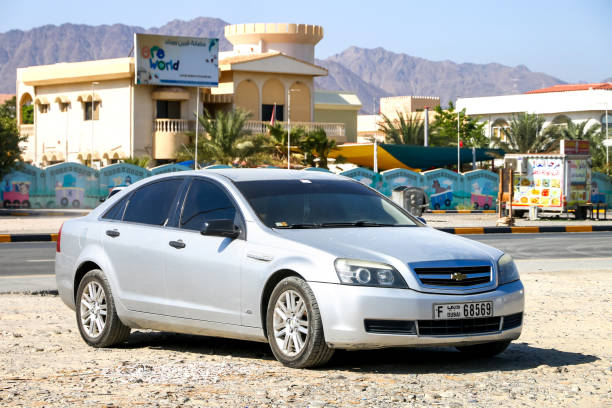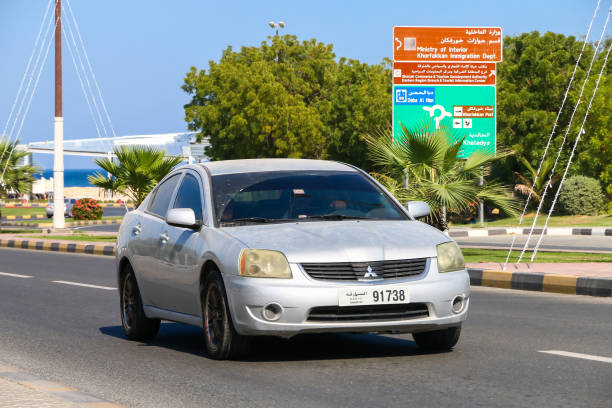Things to Check Before Buying a Used Car in UAE
Buying a used car can be a complex decision, especially in bustling markets like the UAE where the options are vast, and considerations differ from those when purchasing new cars. Not only can you find a wide variety of second-hand vehicles, but you might have to navigate through a plethora of conditions, histories, and legalities associated with pre-owned cars. By making informed checks before committing to a purchase, you can avoid common pitfalls and secure a good deal. This article is your comprehensive guide to ensuring that the used car you are eyeing in the UAE is well worth your money and meets your expectations. Here, we will explore key areas such as vehicle history, legal requirements, inspection checklists, and negotiation strategies to help you make a smart purchase.
Understanding the UAE Used Car Market
The used cars market in the UAE is as dynamic as it is diverse, offering potential buyers a spectrum of choices from luxurious sedans to rugged SUVs. Before diving into the pre-owned cars pool, it is crucial to familiarize oneself with the ebb and flow of this specific market. Popularity of certain brands could also greatly influence your decision, as some makes have proven resilience in the harsh desert environment, promising longevity and reliability.
Popularity of Brands and Models
Certain brands and models reign supreme on the UAE roads. For example, Toyota and Nissan are known for their durability and often dominate the second-hand cars sales, while luxury brands like Mercedes-Benz and BMW also have a strong presence. Knowing which models retain their value and reliability over time can steer you toward a better investment, as some vehicles depreciate slower than others.
The Role of Dealerships vs. Private Sellers
One might ponder whether to purchase from established dealerships or private sellers. Dealerships generally offer certified pre-owned cars that come with warranties and a sense of security regarding the car’s condition. Private sellers, on the other hand, could offer a more negotiable price point but might have less guarantees about the vehicle’s past. It is a choice between the assurance of a dealership and the potential price benefits from a private deal.

Pre-Purchase Research
The groundwork for purchasing a used car involves significant research. It is fundamental to ensure all aspects of the car’s history and current condition are transparent and to your satisfaction. Proper research not only guarantees peace of mind but also ensures the longevity and good performance of your vehicle.
Vehicle History Check
In the UAE, a detailed vehicle history check should be first on the agenda. Scrutiny into the past of the second-hand car can unveil important details such as prior accidents, frequency of ownership changes, service records, and if the car has any outstanding loans against it. Knowing the full history of the car can guide your decision and protect you from future legal or financial issues.
The Legal Framework for Used Cars in the UAE
Understanding the local laws and regulations is essential when entering the cars market in the UAE. The legal framework is designed to safeguard the buyer’s interests, ensuring that all necessary checks and disclosures have been made. One should also check whether the car has any pending fines or regulatory issues that could affect the transfer of ownership.
Thorough Inspection Checkpoints
When the preliminary stages are complete, and a vehicle has caught your eye, it is crucial to engage in a comprehensive inspection. Whether you are using the services of a professional or have a degree of mechanical knowledge yourself, here are key areas you should examine meticulously.
Mechanical Inspection
Mechanical soundness is a non-negotiable aspect of purchasing a used car. Critical systems such as the engine, transmission, brakes, and suspension should be rigorously checked. Beware of sounds, vibrations, or responses that are not par for the course. A numbered list can help you stay organized during the inspection:
- Engine performance and idle stability.
- Transmission smoothness and responsiveness.
- Brake efficiency and condition of pads/rotors.
- Suspension integrity on various terrains.
- Condition of belts, hoses, and fluids for any leaks or wear.
- Air conditioning efficiency in the UAE climate.
Exterior and Interior Condition
Do not overlook the aesthetics, as they can also be indicative of deeper issues. Evaluate the car for any dents, rust, or paint damage, which could suggest previous accidents or poor maintenance. Similarly, the car’s interior should be inspected for wear that’s beyond the expected for its age, pointing to potentially rough usage by previous owners.
Test Drive Protocol
Taking the car for a test drive is possibly the best way to gauge its overall health. During a test drive, factors such as steering response, brake functionality, gear transition, noise levels, and overall comfort should be thoroughly assessed. Noting down observations during the test drive could assist in subsequent negotiations.

Closing the Deal
You are now in the final stretch of your purchasing journey. It is the moment to discuss terms, negotiate a good price, and crystallize the deal with appropriate paperwork. Here is where your earlier diligence pays off, giving you the confidence to make sound decisions.
Negotiating the Best Price
Remember, the asking price for second-hand cars is rarely set in stone. Arm yourself with the information gleaned from history checks and inspections to negotiate a price that reflects the car’s true value. Sellers are typically open to negotiation, especially if you’re informed and reasonable in your approach.
Necessary Documentation and Transfer Procedures
Understanding the documentation and transfer procedures is crucial in securing a smooth transaction. Below is a table outlining the critical documents required for transferring vehicle ownership in the UAE, which ensures legality and clarity for both parties.
| Document | Description | Remarks |
|---|---|---|
| Passport Copy | To verify the identity of the buyer. | Required for both buyer and seller. |
| Residence Visa | Needed to confirm UAE residency. | Copy may be required. |
| UAE Driving License | To ensure the buyer is legally allowed to drive. | Original and copy may be necessary. |
| Insurance Certificate | Proof of vehicle insurance transfer or new policy. | Must be valid and in the name of the buyer. |
| Technical Inspection Certificate | Shows the vehicle has passed necessary checks. | Often required for older vehicles. |
| Sale Agreement | A legal contract outlining the terms of the sale. | Must be signed by both parties. |

Conclusion
Whether you’re investing in a luxury sedan or a practical family car, doing your homework before signing the dotted line is paramount in the UAE used cars market. Vehicle inspections, history checks, legal paperwork, and test drives are all essential components of a thorough pre-purchase routine. By being vigilant at each step, you can ensure that the pre-owned car you are buying will be there to serve you well into the future. At the end of the day, the right amount of caution and informed decision-making will lead you to a used car that offers the best value and reliability for your hard-earned money.
Frequently Asked Questions
Here are some questions potential buyers frequently ask when looking into used cars in the UAE.
- What is the most reliable way to check a used car’s history in the UAE?
The best and most reliable way to check the history of a used car is by accessing officially provided channels such as the Roads and Transport Authority (RTA), which offers comprehensive history reports including any past accidents, prior ownership details, and current fines or encumbrances. - Should I have a used car inspected by a professional before buying?
Yes, it is highly recommended to get a used car professionally inspected before completing the purchase. A professional mechanic can uncover potential issues which can either be used for negotiating the price down or making an informed decision to walk away from a bad deal. - What are the common red flags to look out for when buying a used car?
Common red flags include, but are not limited to, signs of flood damage, mismatched paintwork indicative of major repairs, excessively worn interiors, incomplete service history, and the presence of unusual noises or smells during a test drive. - Can I negotiate for a better price if I find issues during the inspection?
Definitely. If during the inspection, you find issues that could require future repairs or signal the car was not well-maintained, you can use this information to negotiate for a lower purchase price or request for the seller to make the necessary repairs. - Is it necessary to transfer car insurance when buying a used car in the UAE?
Yes, the transfer of vehicle insurance to the new owner or the purchase of a new insurance policy is a legal requirement in the UAE. Driving without valid insurance is not only risky but also attracts fines and penalties.


